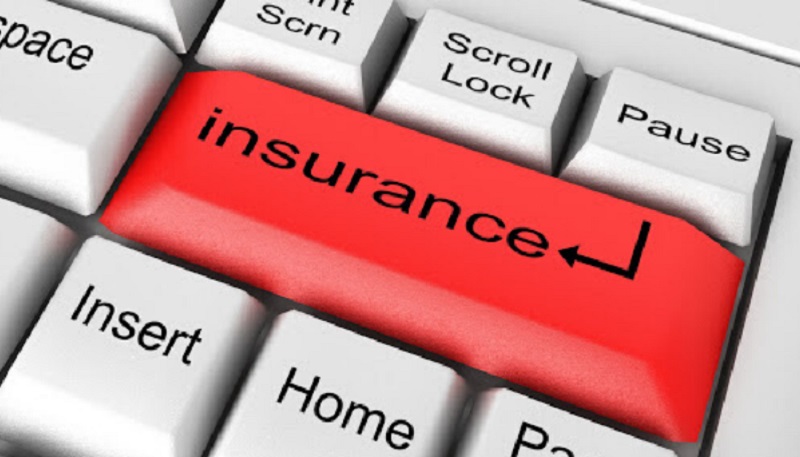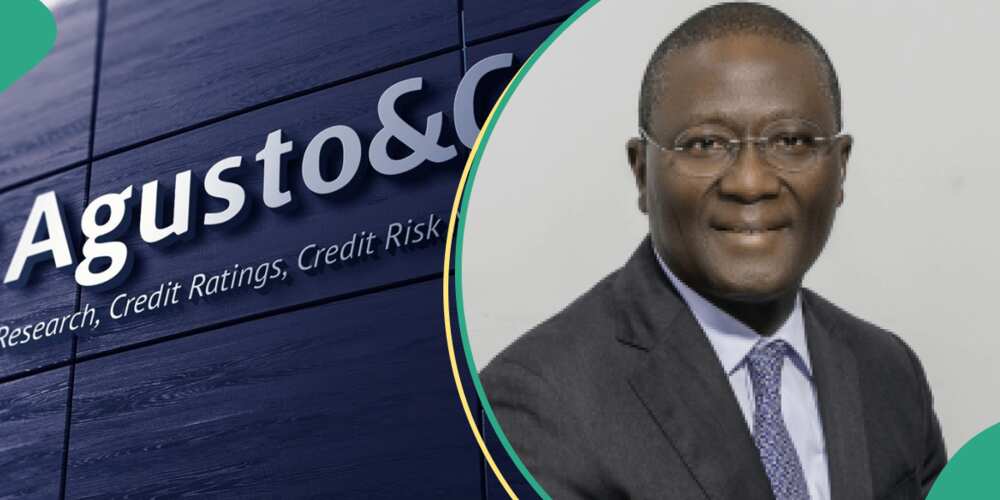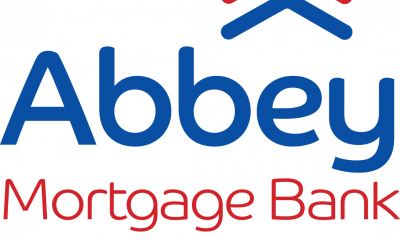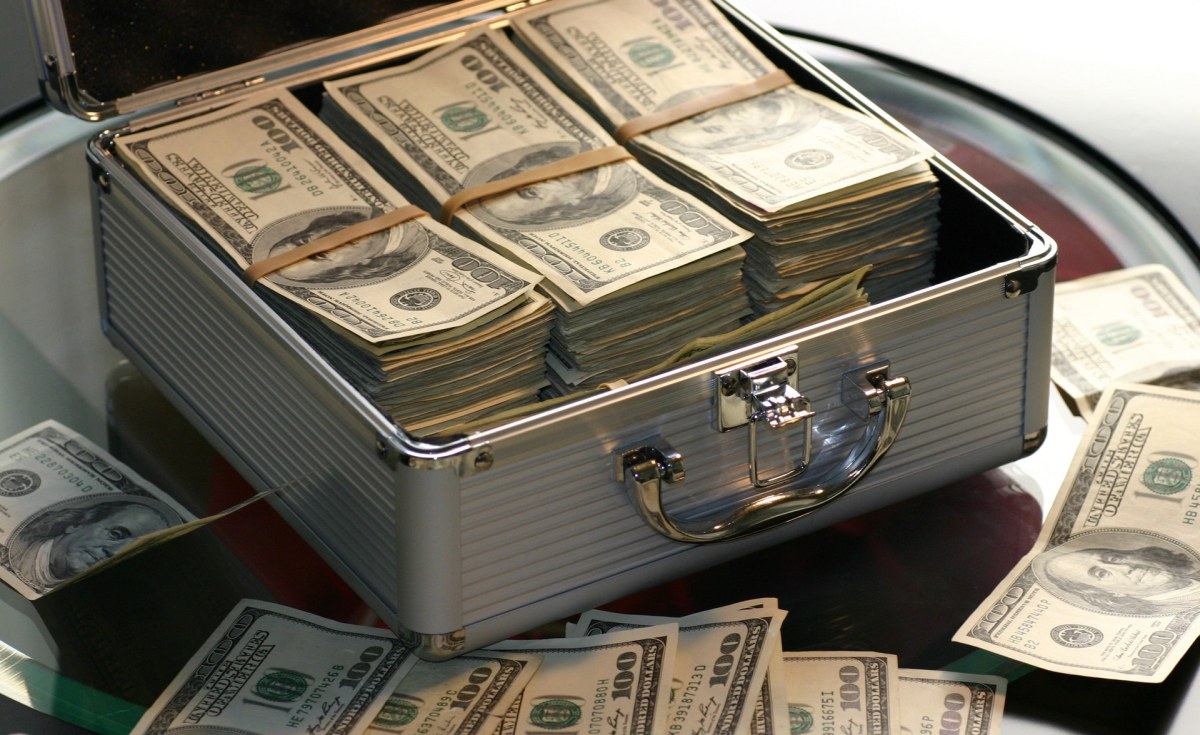Economy
Nigerian Insurance Industry Will Survive Weak Economy, Election—Agusto

By Adedapo Adesanya
A credit rating agency, Agusto & Co, has revealed that Nigeria’s insurance industry is poised to emerge stronger amid weak macroeconomic indicators and uncertainties surrounding the 2023 general elections.
This was contained in its 2023 insurance industry report, which provides a comprehensive review of the insurance landscape in Nigeria and the near-term expectation for the industry.
The report contains a review of how the Nigerian insurance industry has fared amidst the lingering macroeconomic headwinds and outlook for the Industry in an election year.
According to Agusto & Co., the Nigerian insurance industry’s estimated gross premium income (GPI) maintained its double-digit growth trend and crossed the N700 billion mark in FY 2022.
The uptick in the industry’s premium was driven by several factors, including improved economic activities and stronger regulatory support.
Furthermore, while the Industry’s performance in FY2021 was moderated by the payout of claims emanating from the violence that trailed the #EndSARS protest, such outflows were minimal in 2022, given the non-recurring nature of the crisis.
Consequently, the Nigerian insurance industry’s estimated net claims for FY2022 rose by a lower 13 per cent relative to the previous year. Notwithstanding, inflationary pressures continue to adversely impact claim settlements, underwriting costs, operating expenses and also moderate profitability indices.
Agusto & Co. also recognises that the country’s insecurity gaps, infrastructural shocks and aftermath of the#EndSARS protest have emphasised the benefits of insurance products, particularly fire and general accident policies.
One of the most notable highlights of the Industry in 2022 was the increase in third-party motor insurance policy rates by the National Insurance Commission (NAICOM), the apex regulator, on December 22, 2022. NAICOM raised the new premium for private motors to N15,000, staff buses to N20,000, commercial trucks/general cartage to N100,000, commercial tricycles to N5,000 and commercial motorcycles to N3,000. These policies previously had a basic rate of N5,000.
In addition to the new premium rates, NAICOM announced that the comprehensive motor insurance policy premium rate should not be less than 5 per cent of the sum insured after all rebates or discounts.
Although the policy has received some criticisms, Agusto & Co. believes that it would cushion the rising loss rates from the associated business line and support a boost in GPI in FY2023.
Nevertheless, Nigeria’s political environment will define the financial year 2023 for insurance operators.
The first half of 2023 would be characterised by electioneering activities, while the second half would bring a new administration and fresh ideas for fiscal and economic transformation.
The firm noted that possible election violence poses a downside risk that could adversely impact insurance operators, especially if it is a widespread occurrence across several states.
However, there will also be opportunities to secure new insurance contracts from the public sector, especially in the second half of 2023.
In the near term, Agusto & Co. expects the introduction of a risk-based capital regime to gain momentum while NAICOM continues to implement policies and directives that would boost the industry’s sustainability.
“A strong regulatory stance to claims payments which resulted in the withdrawal of the license of some insurers in 2022, though being contested in the court of law, would remain in 2023 and possibly going forward as part of NAICOM’s efforts to sanitise the industry.
“The non-conventional takaful insurance segment, which is an under-tapped area, is already witnessing significant growth as evidenced by the marked 172 per cent growth in GPI in FY2021.
“We anticipate that the segment would continue on its upward trajectory in the near term. Takaful insurers offer alternatives to conventional insurance, and their model is based on the concept of social solidarity, cooperation and mutual indemnification of losses of members,” according to a note shared with Business Post.
Agusto&Co. also believes that these alternative insurers would continue to leverage the large Muslim population in Nigeria, estimated at over 100 million, to grow the segment.
Albeit, the relatively low awareness of these alternative products remains a challenge to be surmounted.
Microinsurance is also poised for growth given the dwindling consumer purchasing power, large informal sector and relatively high poverty rate in the country.
“Overall, Agusto & Co. expects a modest performance by the Industry in FY 2023, supported by the rising yield environment. Initiatives such as the bancassurance model, which would enable insurance operators to partner with the banking industry to deepen their reach in the retail market, will also bolster the industry in our view. The rate hikes for third-party motor insurance and the bullish growth track for microinsurance, takaful insurance and some new entrants in the conventional insurance landscape are also growth drivers for the industry.
“Furthermore, the intensified marketing campaigns, awareness programmes and adoption of digital channels would continue to support penetration, albeit strong broker relationships would remain vital in bolstering performance,” the note said.
Agusto&Co. noted that the political terrain would also shift in the year 2023, and the operators’ ability to respond promptly to these changes would be a key factor for the industry’s performance in the near term.
Economy
Lokpobiri Begs Lawmakers to Reschedule Oil Revenue Executive Order Probe

By Adedapo Adesanya
A joint National Assembly probe into President Bola Tinubu’s new oil revenue executive order was stalled on Thursday following a request for more time by the Minister of Petroleum Resources, Mr Heineken Lokpobiri.
The hearing was convened to scrutinise the executive order directing that royalty oil, tax oil, profit oil, profit gas and other revenues due to the Federation under various petroleum contracts be paid directly into the Federation Account.
Mr Lokpobiri told lawmakers that although he attended out of respect for parliament, he had been notified of the hearing only a day earlier and had not obtained all the relevant documents needed to defend the policy adequately.
He appealed for the session to be rescheduled.
Co-chairman of the joint committee and Chairman of the Senate Committee on Gas, Mr Agom Jarigbe, put the request to a voice vote, and lawmakers approved the adjournment.
A new date is expected to be communicated to the minister.
The executive order signed last week also scrapped the 30 per cent Frontier Exploration Fund created under the Petroleum Industry Act (PIA) and discontinued the 30 per cent management fee on profit oil and profit gas previously retained by the Nigerian National Petroleum Company (NNPC) Limited.
Anchored on Sections 5 and 44(3) of the Constitution, the presidency said the directive was aimed at safeguarding oil and gas revenues, curbing excessive deductions and restoring the constitutional entitlements of federal, state and local governments to the
However, the order has sparked criticism within the industry, one of which was from the Petroleum and Natural Gas Senior Staff Association of Nigeria (PENGASSAN), whose president, Mr Festus Osifo, called for an immediate withdrawal of the order, warning that it could undermine the PIA and erode investor confidence.
Meanwhile, at another session, the Chairman of the Senate Committee on Finance, Senator Mohammed Sani Musa, disclosed that President Tinubu would soon transmit proposals to amend certain provisions of the PIA to align with current economic realities.
He noted that while many expect the executive order to boost revenue automatically, Nigeria has yet to achieve its desired income levels.
He did not specify which sections of the law would be targeted, but suggested that the drive to enhance revenue generation would necessitate legislative adjustments.
The PIA, signed into law in 2021 by the late ex-President Muhammadu Buhari, overhauled the governance, regulatory and fiscal framework of Nigeria’s oil and gas sector, commercialised the NNPC and restructured revenue-sharing arrangements.
Economy
NGX Group Declares N2 Final Dividend, 1-for-3 Bonus Issue for FY’25

By Aduragbemi Omiyale
Shareholders of Nigerian Exchange (NGX) Group Plc will receive one new share for every three held as of April 10, 2026, as a bonus, according to a proposal from the board.
This is in addition to a final dividend of N2.00 proposed by the board to shareholders for the 2025 fiscal year, which raised the total dividend for the year to N3.00, according to the financial statements of the company filed with NGX Limited.
Last year, NGX Group recorded a sterling performance, with its earnings growing by 36.0 per cent to N22.9 billion from N16.9 billion due to sustained growth across core business segments, improved customer penetration on the back of increased investor activity and rising investor confidence.
The operating profit in the year increased by 44.4 per cent to N11.8 billion, while pre-tax profit jumped to N15.6 billion from N13.6 billion in 2024, with the earnings per share (EPS) at N4.75.
As for its balance sheet, total assets increased to N71.0 billion from N68.0 billion, while shareholders’ equity strengthened to N55.2 billion
The improved debt-to-equity position reflects a conservative capital structure, enhanced solvency profile, and strong retained earnings growth.
“Our 2025 performance demonstrates the resilience of our business model and the effectiveness of disciplined strategic execution. Strong revenue growth, improved operating margins and a strengthened balance sheet reinforce our commitment to delivering sustainable long-term shareholder value.
“The increased dividend and bonus issue reflect the Board’s confidence in the sustainability of our earnings and the robustness of our capital position as we continue to deepen Nigeria’s capital markets.
“We are confident that the momentum that we have built in 2025 will be sustained, given investor confidence in the Nigerian capital market and a pipeline of exciting new listings that will broaden and deepen the market,” the chairman of NGX Group, Mr Umaru Kwairanga, said.
On his part, the chief executive of the organisation, Mr Temi Popoola, said, “We delivered strong top-line growth and enhanced profitability in 2025 despite macroeconomic headwinds.
“Our 36 per cent core revenue growth, improved operating efficiency and successful deleveraging have strengthened our capital base and financial flexibility, supporting the increased dividend and bonus issuance.
“As regulatory standards evolve, including the recent upward review of minimum capital requirements by the Securities and Exchange Commission (SEC), our robust balance sheet positions us to meet new thresholds seamlessly while continuing to invest in liquidity expansion, product innovation and market infrastructure to build a resilient, globally competitive exchange group.”
Economy
FG Targets Credit Access For 50% Workers By 2030

By Adedapo Adesanya
The Vice President, Mr Kashim Shettima, inaugurated the Board of the Nigerian Consumer Credit Corporation (CREDICORP) and gave a 50 per cent access target for workers, saying consumer credit was critical to Nigeria’s ambition of becoming a one-trillion-dollar economy by 2030.
According to him, President Bola Tinubu established the CREDICORP to build a trusted credit infrastructure, provide catalytic capital to lower borrowing costs, and help Nigerians overcome long-standing cultural resistance to credit.
Speaking on Thursday in Abuja when he inaugurated the board on behalf of the President, the Vice President, in a statement by his spokesman, Mr Stanley Nkwocha, said that the quality of life of Nigerians cannot improve without closing the gap between access to capital and human dignity.
“A civil servant who earns honestly does not have to chase sudden wealth just to buy a vehicle, or save for ten years to buy one. A young professional should not remain in darkness simply because solar power must be paid for all at once,” the Vice President said.
VP Shettima disclosed that in just one year of operations, CREDICORP has disbursed over ₦37 billion in consumer credit to more than 200,000 Nigerians, with over half of them accessing formal credit for the first time.
The Vice President said the organisation was specifically tasked with building credit infrastructure to bridge the trust gap between lenders and borrowers, providing wholesale capital and credit guarantees through its portfolio company.
“Ultimately, these critical jobs of CREDICORP will enable access to consumer credit to at least 50 per cent of working Nigerians by 2030,” he said.
The Vice President explained that the new board’s role was not ceremonial as they are custodians of the organisation’s mission, adding that the long-term strength of the institution would depend on their “vigilance, integrity, sacrifice, and commitment.”
He directed Board members to uphold Public Service Rules, the Board Charter, and all applicable governance frameworks, warning that accountability and stewardship of public resources were non-negotiable.
The Chairman of CREDICORP, Mr Aderemi Abdul, expressed appreciation to President Tinubu for his vision behind the formation of CREDICORP and for the confidence reposed in them, noting that the establishment of the corporation marked an important step towards strengthening the nation’s financial architecture.
He assured President Tinubu that the board understands its responsibility and will guide the institution to deliver meaningful benefits to Nigerians.
For his part, Mr Uzoma Nwagba, Managing Director/CEO of CREDICORP, recalled watching President Tinubu say 20 years ago that consumer credit is one of the major tools that will improve the lives of Nigerians.
He noted that over the past 18 months, the institution has benefited more than 200,000 Nigerians, including students.
He assured that the presidential vision behind CREDICORP would not be taken lightly, as the team considers their appointments a unique, once-in-a-lifetime opportunity.
Other members of the board inaugurated include Mrs Olanike Kolawole, Executive Director, Operations; Mrs Aisha Abdullahi, Executive Director, Credit and Portfolio Management; Mr Armstrong Ume-Takang (MD, MoFI), Representative of MoFI; Mrs Bisoye Coke-Odusote (DG, NIMC), Representative of NIMC; and Mr Mohammed Naziru Abbas, Representative of FMITI.
Others are Mr Marvin Nadah, Representative of FCCPC; Mrs Chinonyelum Ndidi, Representative of the Federal Ministry of Finance; Mr Mohammed Abbas Jega, Independent Director; and Mrs Toyin Adeniji, Independent Director.
-

 Feature/OPED6 years ago
Feature/OPED6 years agoDavos was Different this year
-
Travel/Tourism10 years ago
Lagos Seals Western Lodge Hotel In Ikorodu
-

 Showbiz3 years ago
Showbiz3 years agoEstranged Lover Releases Videos of Empress Njamah Bathing
-

 Banking8 years ago
Banking8 years agoSort Codes of GTBank Branches in Nigeria
-

 Economy3 years ago
Economy3 years agoSubsidy Removal: CNG at N130 Per Litre Cheaper Than Petrol—IPMAN
-

 Banking3 years ago
Banking3 years agoSort Codes of UBA Branches in Nigeria
-

 Banking3 years ago
Banking3 years agoFirst Bank Announces Planned Downtime
-

 Sports3 years ago
Sports3 years agoHighest Paid Nigerian Footballer – How Much Do Nigerian Footballers Earn




















